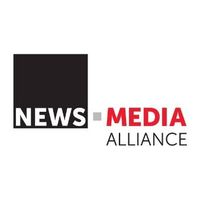The End of Bypass Paywalls Clean: A Digital Dilemma
August 21, 2024, 4:10 pm

Location: United States, California, San Francisco
Employees: 1001-5000
Founded date: 2008
Total raised: $350M

Location: United States, California, Mountain View
Employees: 1001-5000
Founded date: 2005
Total raised: $300K

Location: United States, Virginia, Arlington
Employees: 11-50
Founded date: 1992

Location: United States, California, San Francisco
Employees: 1001-5000
Founded date: 2014
Total raised: $533.5M
In the digital age, the battle between content creators and consumers rages on. At the heart of this conflict lies a tool that has stirred controversy: Bypass Paywalls Clean (BPC). This browser extension allowed users to access paywalled content without paying a dime. But now, it faces a significant setback. GitHub has removed BPC and its 3,879 forks, following a complaint from the News Media Alliance (NMA). This marks a pivotal moment in the ongoing struggle over digital content access.
The internet has transformed how we consume information. Traditional newspapers, once the titans of the media landscape, now grapple with a new reality. The rise of digital platforms has disrupted their business models. Print sales have plummeted. Advertising revenue, once a reliable lifeline, has dwindled. The emergence of ad-blocking software has further complicated matters. Readers, tired of intrusive ads, have sought refuge in ad-free experiences.
In response, many publications erected paywalls. These barriers require readers to pay for access to premium content. For some, this strategy has been a lifeline. For others, it has driven readers away. Enter BPC, a tool that promised to bypass these paywalls. With a simple installation, users could access content without a subscription. This was a game-changer for those unwilling to pay.
However, the NMA, representing over 2,200 publishers, viewed BPC as a threat. They argued that the extension undermined their ability to generate revenue. The NMA's complaint was not just about copyright infringement. It was rooted in the Digital Millennium Copyright Act (DMCA), specifically Section 1201. This section prohibits technologies designed to circumvent access controls. In essence, BPC was seen as a digital lockpick, allowing users to bypass the gates of paywalled content.
The NMA's complaint was clear. They identified four specific products associated with BPC: bypass-paywalls-chrome, bypass-paywalls-firefox, bpc_updates, and bypass-paywalls-clean-filters. Each product was housed in its own repository. Unlike typical copyright claims, this complaint focused on the software itself, which facilitated access to copyrighted content. The NMA argued that BPC’s technology effectively circumvented the paywalls put in place by its members.
GitHub, in response to the NMA's complaint, took action. They disabled the repositories associated with BPC, impacting thousands of users. This decision was not made lightly. GitHub carefully reviewed the claims and determined that the allegations were valid. The platform provided a window for the repository owners to comply with the law. However, with no changes made, the takedown was inevitable.
The implications of this decision are profound. For publishers, it represents a victory in the fight against unauthorized access to their content. For users, it signals a tightening grip on digital information. The internet was once a wild frontier, where information flowed freely. Now, it feels more like a gated community, where access comes at a price.
The removal of BPC raises questions about the future of digital content consumption. Will users turn to alternative methods to access paywalled content? The answer is likely yes. The internet is a vast ocean, and where one wave recedes, another rises. New tools will emerge, seeking to fill the void left by BPC. The cycle of circumvention and enforcement will continue.
This situation also highlights a broader issue: the sustainability of journalism in the digital age. As traditional revenue streams dry up, publishers are forced to adapt. Paywalls are one solution, but they come with their own set of challenges. Many readers are unwilling to pay for content they once accessed for free. This creates a paradox. Publishers need revenue to survive, but readers resist paying for content.
The NMA's actions are a response to this paradox. By protecting their paywalls, they aim to secure their financial future. However, this approach may alienate potential readers. A balance must be struck between protecting content and ensuring accessibility. If publishers become too restrictive, they risk losing their audience altogether.
As the dust settles on the BPC saga, the digital landscape remains in flux. The removal of this extension is a reminder of the ongoing struggle between content creators and consumers. It underscores the importance of finding innovative solutions to support journalism while respecting the rights of readers.
In conclusion, the demise of Bypass Paywalls Clean is more than just a legal battle. It is a reflection of the changing dynamics in the media landscape. As we navigate this new terrain, the question remains: how do we ensure that quality journalism thrives in an era of digital disruption? The answer lies in collaboration, innovation, and a commitment to preserving the integrity of information. The future of media depends on it.
The internet has transformed how we consume information. Traditional newspapers, once the titans of the media landscape, now grapple with a new reality. The rise of digital platforms has disrupted their business models. Print sales have plummeted. Advertising revenue, once a reliable lifeline, has dwindled. The emergence of ad-blocking software has further complicated matters. Readers, tired of intrusive ads, have sought refuge in ad-free experiences.
In response, many publications erected paywalls. These barriers require readers to pay for access to premium content. For some, this strategy has been a lifeline. For others, it has driven readers away. Enter BPC, a tool that promised to bypass these paywalls. With a simple installation, users could access content without a subscription. This was a game-changer for those unwilling to pay.
However, the NMA, representing over 2,200 publishers, viewed BPC as a threat. They argued that the extension undermined their ability to generate revenue. The NMA's complaint was not just about copyright infringement. It was rooted in the Digital Millennium Copyright Act (DMCA), specifically Section 1201. This section prohibits technologies designed to circumvent access controls. In essence, BPC was seen as a digital lockpick, allowing users to bypass the gates of paywalled content.
The NMA's complaint was clear. They identified four specific products associated with BPC: bypass-paywalls-chrome, bypass-paywalls-firefox, bpc_updates, and bypass-paywalls-clean-filters. Each product was housed in its own repository. Unlike typical copyright claims, this complaint focused on the software itself, which facilitated access to copyrighted content. The NMA argued that BPC’s technology effectively circumvented the paywalls put in place by its members.
GitHub, in response to the NMA's complaint, took action. They disabled the repositories associated with BPC, impacting thousands of users. This decision was not made lightly. GitHub carefully reviewed the claims and determined that the allegations were valid. The platform provided a window for the repository owners to comply with the law. However, with no changes made, the takedown was inevitable.
The implications of this decision are profound. For publishers, it represents a victory in the fight against unauthorized access to their content. For users, it signals a tightening grip on digital information. The internet was once a wild frontier, where information flowed freely. Now, it feels more like a gated community, where access comes at a price.
The removal of BPC raises questions about the future of digital content consumption. Will users turn to alternative methods to access paywalled content? The answer is likely yes. The internet is a vast ocean, and where one wave recedes, another rises. New tools will emerge, seeking to fill the void left by BPC. The cycle of circumvention and enforcement will continue.
This situation also highlights a broader issue: the sustainability of journalism in the digital age. As traditional revenue streams dry up, publishers are forced to adapt. Paywalls are one solution, but they come with their own set of challenges. Many readers are unwilling to pay for content they once accessed for free. This creates a paradox. Publishers need revenue to survive, but readers resist paying for content.
The NMA's actions are a response to this paradox. By protecting their paywalls, they aim to secure their financial future. However, this approach may alienate potential readers. A balance must be struck between protecting content and ensuring accessibility. If publishers become too restrictive, they risk losing their audience altogether.
As the dust settles on the BPC saga, the digital landscape remains in flux. The removal of this extension is a reminder of the ongoing struggle between content creators and consumers. It underscores the importance of finding innovative solutions to support journalism while respecting the rights of readers.
In conclusion, the demise of Bypass Paywalls Clean is more than just a legal battle. It is a reflection of the changing dynamics in the media landscape. As we navigate this new terrain, the question remains: how do we ensure that quality journalism thrives in an era of digital disruption? The answer lies in collaboration, innovation, and a commitment to preserving the integrity of information. The future of media depends on it.